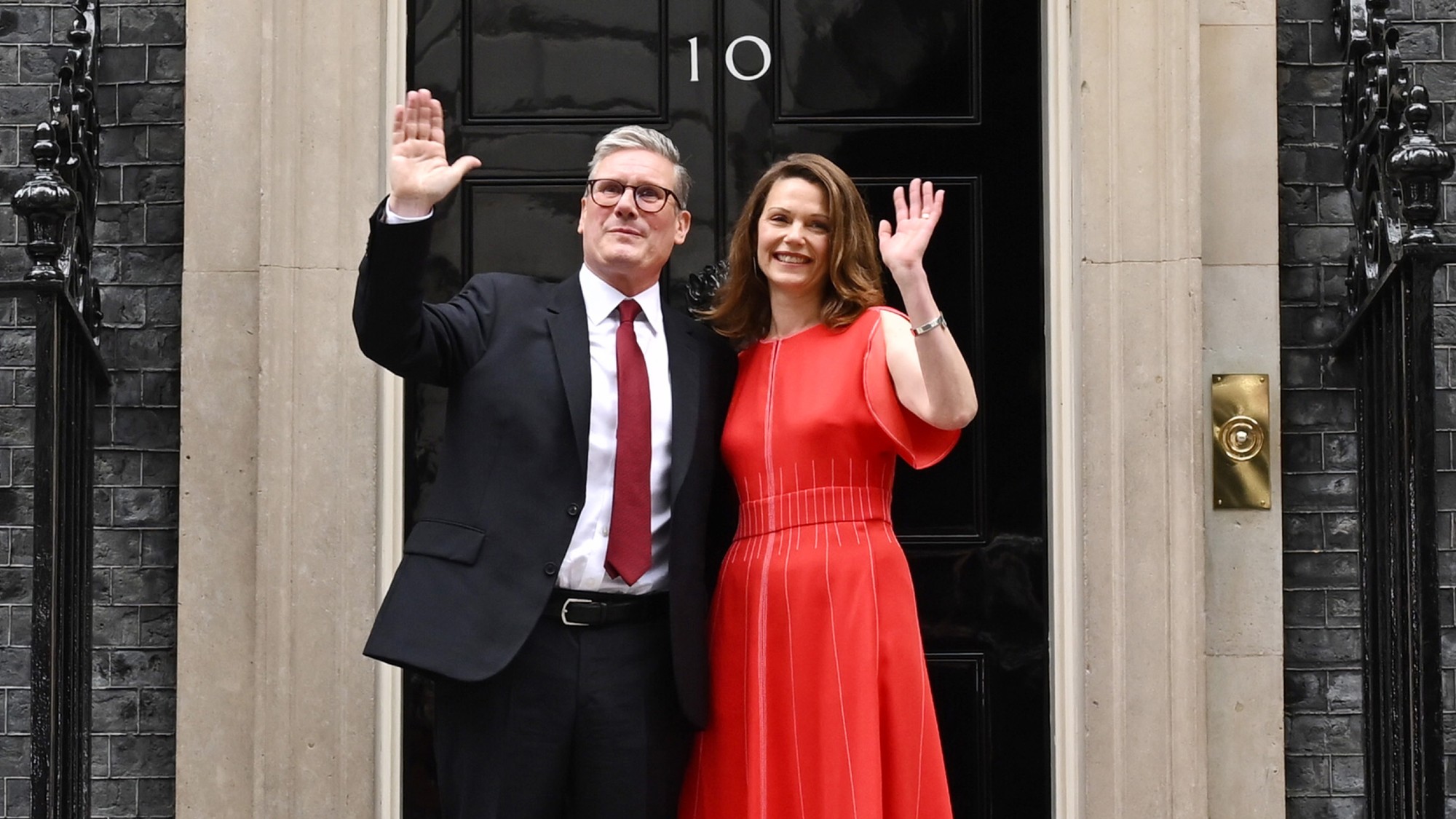Labour's first week in power
The NHS, prisons and housing are at the top of a to-do list which risks crashing into 'wall of economic reality'

A free daily email with the biggest news stories of the day – and the best features from TheWeek.com
You are now subscribed
Your newsletter sign-up was successful
Keir Starmer's Cabinet ministers outlined their policy priorities this week, following Labour's landslide victory in the general election.
The immediate focus appeared to be on economic growth, housebuilding and improving the NHS. In her first speech as Chancellor, Rachel Reeves promised to "get Britain building" by reinstating housebuilding targets for councils and reviewing green belt boundaries. However, she warned of "difficult choices" ahead as she ordered the Treasury to draw up an analysis of the state of the public finances. Separately, the Health Secretary, Wes Streeting, declared the NHS to be "broken" after 14 years of Tory rule, but said that he'd held "positive" talks with unions about a deal to end the junior doctors' strikes.
'Stability and expertise'
In his first days as PM, Starmer appointed a Cabinet that included record numbers of female and of state-educated ministers. He visited Scotland, Wales and Northern Ireland – vowing to "reset" relations with the devolved administrations – and hosted 12 regional mayors at No. 10. On Tuesday, he flew to the Nato summit in Washington. He reiterated his promise to raise defence spending to 2.5% of GDP, but did not say by when. In a call with Israeli PM Benjamin Netanyahu, he'd earlier stressed the "urgent need" for a ceasefire in Gaza.
The Week
Escape your echo chamber. Get the facts behind the news, plus analysis from multiple perspectives.

Sign up for The Week's Free Newsletters
From our morning news briefing to a weekly Good News Newsletter, get the best of The Week delivered directly to your inbox.
From our morning news briefing to a weekly Good News Newsletter, get the best of The Week delivered directly to your inbox.
Starmer promised change, said The Observer – and his initial decisions as PM suggest that he was serious. By giving most of his former shadow ministers their equivalent Cabinet posts, he has prioritised "expertise and stability" over "favours for allies". And he has made some "inspired" appointments from outside Parliament: James Timpson, the businessman known for employing ex-prisoners at his keycutting firm, was made Prisons Minister; Sir Patrick Vallance, the former chief scientific adviser, is the new Science Minister.
'Remarkable accomplishment'
Britain has its first Labour PM in 14 years, and with a huge majority to boot. That's a "remarkable accomplishment" for Starmer, said The Times – and testament to the diligence with which he set about transforming his party after its defeat in 2019. But this was a "loveless landslide", said the Daily Mail. Labour won 63% of seats, on 34% of the vote – the lowest for an incoming PM since 1832. Yes, Labour won plenty of seats; but it didn't win voters' "hearts and minds".
The new Government faces formidable challenges, said The Daily Telegraph: Britain is mired in debt, the NHS is in "crisis", and growth has been sluggish for years. Starmer says that "actions not words" are needed to solve those problems and restore trust in politics; but his promise of "change" may soon "crash into a wall of economic reality".
A free daily email with the biggest news stories of the day – and the best features from TheWeek.com
-
 The ‘ravenous’ demand for Cornish minerals
The ‘ravenous’ demand for Cornish mineralsUnder the Radar Growing need for critical minerals to power tech has intensified ‘appetite’ for lithium, which could be a ‘huge boon’ for local economy
-
 Why are election experts taking Trump’s midterm threats seriously?
Why are election experts taking Trump’s midterm threats seriously?IN THE SPOTLIGHT As the president muses about polling place deployments and a centralized electoral system aimed at one-party control, lawmakers are taking this administration at its word
-
 ‘Restaurateurs have become millionaires’
‘Restaurateurs have become millionaires’Instant Opinion Opinion, comment and editorials of the day
-
 ‘Poor time management isn’t just an inconvenience’
‘Poor time management isn’t just an inconvenience’Instant Opinion Opinion, comment and editorials of the day
-
 ‘The forces he united still shape the Democratic Party’
‘The forces he united still shape the Democratic Party’Instant Opinion Opinion, comment and editorials of the day
-
 Kurt Olsen: Trump’s ‘Stop the Steal’ lawyer playing a major White House role
Kurt Olsen: Trump’s ‘Stop the Steal’ lawyer playing a major White House roleIn the Spotlight Olsen reportedly has access to significant US intelligence
-
 ICE eyes new targets post-Minnesota retreat
ICE eyes new targets post-Minnesota retreatIn the Spotlight Several cities are reportedly on ICE’s list for immigration crackdowns
-
 How are Democrats trying to reform ICE?
How are Democrats trying to reform ICE?Today’s Big Question Democratic leadership has put forth several demands for the agency
-
 Democrats push for ICE accountability
Democrats push for ICE accountabilityFeature U.S. citizens shot and violently detained by immigration agents testify at Capitol Hill hearing
-
 Fulton County: A dress rehearsal for election theft?
Fulton County: A dress rehearsal for election theft?Feature Director of National Intelligence Tulsi Gabbard is Trump's de facto ‘voter fraud’ czar
-
 ‘Melania’: A film about nothing
‘Melania’: A film about nothingFeature Not telling all